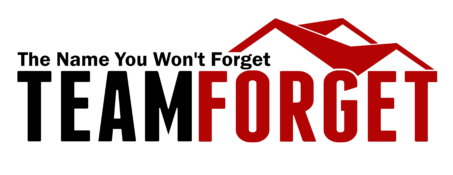TEAM FORGET’S Richard Forget analyses the difference between a deposit and down payment in another “To The Point” video.
CLICK OR TAP ON THE PICTURE BELOW TO WATCH!
At TEAM FORGET we have been asked this question many times by clients. “What is the difference between a down payment and a deposit?” Here is the simple answer…a lot!
Let us start with deposit. Simply stated a deposit is a “show of good faith” that is submitted alongside your offer to purchase a home. One you have decided that with your agents guidance you have found the home of your dream you will need to present what is called an agreement of purchase and sale. This is the formal offer that you submit to the seller. We won’t go into the actual offer at this point because it will be a topic in another video blog in the near future. The important part for you to know is that your agent will guide through this process and present the offer on your behalf to the sellers agent. As stated earlier along with the offer your agent will submit a cheque. This deposit is a way for you to show the seriousness of your offer.
There is no “set’ amount in terms of the amount that the deposit cheque should be. With that said it should be as much as can afford. Your agent will guide you as to what is a good number but there are advantages to it being a solid number. Here is an example as to why this is true. Let’s assume a seller has received to offers on their home. Everything about both offers is exactly the same…except on thing. One offer has a higher deposit. Which one do you think the seller might lean towards accepting? Which one would you accept? I would take the one with a higher deposit because it tells me that buyer is more serious. Are they really more serious about their offer than the other person or persons presenting an offer? Probably not but the perception is that they are. Sometimes perception is just as important as what is.
Now, there will be times when the seller will not accept the offer that has a bigger deposit. They may be using another criteria to decide which offer they accept. It could be something as simple as they prefer to sell their home to a young family. Never underestimate the power of sentimentality. The bottom line is we never know what criteria the seller will be using to accept an offer. This we do know. A higher deposit may, just may sway a seller to choose our offer when everything is close to being even.
What happens to that deposit if a seller accepts our offer? That deposit cheque will be deposited in the listing brokerage’s trust account. This account is set up by the brokerage to hold nothing but deposit cheques. They are not allowed to put anything else in that account. Here is the important part. The money that is deposited in that account is completely insured by that listing brokerage. It is one of many reasons to use reputable brokerage such as Re/Max First. A buyer will have complete piece of mind knowing that there is practically no circumstance that they will lose that deposit. The only mitigating factor would be if you have done something illegal that warrants them holding it. This is a topic for another video to be produced in the future. The important point for you to know is that you should know that your hard earned money is safe when it is being held in a brokerage such as Re/Max First’s trust account.
There is a strange myth that some of our clients have mistakenly thought was true. let’s set the record straight here. A deposit is NOT, I repeat, a deposit is not a gift to a seller. There is a word for that if this was the case. That word is bribery. It is just not the case. In reality deposit is attached to a down payment. It is credited to the sale of your home. Now that we have broached the down payment topic, what is it exactly?
A down payment is simply the amount of funds that you are putting down on a home that is NOT included in your mortgage. If you are like virtually everyone who purchases a home you are going to need a mortgage. The mortgage is the amount that you will need to borrow from a lending institution for the purchase of your home. It does not include your down payment.
What is a good amount to put down? That is up to you but the bottom line is you do not want to put down an amount that will leave you in a position that will make it hard to make, for example, mortgage payments. If your down payment is less than 20% you will need to get insurance for your mortgage. This is usually through two entities known as CMHC (Canada Mortgage and Housing Corporation) or Genworth Canada.
So there you go. I hope this has clarified what the difference between a deposit and a down payment is. If you ever have any questions in regards to real estate don’t hesitate to contact us at TEAM FORGET. We won’t forget to respond.
TEAM FORGET
The Name You Won’t…FORGET!


